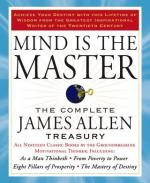|
This section contains 333 words (approx. 2 pages at 300 words per page) |
Dictionary of Literary Biography on James Allen
James Allen, a poet of Boston, was the son of a wealthy merchant of that city. He spent three years at Harvard, but left without a degree. The rest of his life was spent in what one of his contemporaries remembered as indolent repose, writing essays and verses on local affairs that he was quick to recite at the drop of a suggestion to literary or bibulous companions but that he did not take the trouble to publish.
All of literary Boston seems to have known, talked about, and admired his poem on the Battle of Bunker Hill, which was apparently never printed and does not survive. In 1772, on the second anniversary of the Boston Massacre, he composed an ardently patriotic poem to be presented with the address delivered on that occasion by Dr. Joseph Warren. Loyalists in Boston seized upon that poem, calling it a clever ploy meant to deceive patriots and, to prove their assertion, printed it later in that year side by side with an earlier poem by Allen called "The Retrospect," which was as ardently pro-British as the poem on the massacre was propatriot. Allen at that time made no reply, but in 1785 allowed his poem on the massacre to be printed again in Boston, and it was also included in that year in a volume collecting orations commemorative of the massacre. Both pamphlets are extremely rare.
From December 1785 to March 1786 Allen or perhaps one of his patriot friends contributed three parts of another poem called "The Retrospect" to the Boston Magazine, this time affirming his allegiance to the new United States. The largest collection of Allen's verse is the five poems found in Samuel Kettell's Specimens of American Poetry (1829). Allen died, as he had lived, anonymously, a strange man, Boston's first literary bohemian, who was said to have written most harmoniously "when inspired by the West Indian Muses, sugar, rum, and lemon juice," and who kept his coffin in his bedchamber and sometimes slept in it.
|
This section contains 333 words (approx. 2 pages at 300 words per page) |


